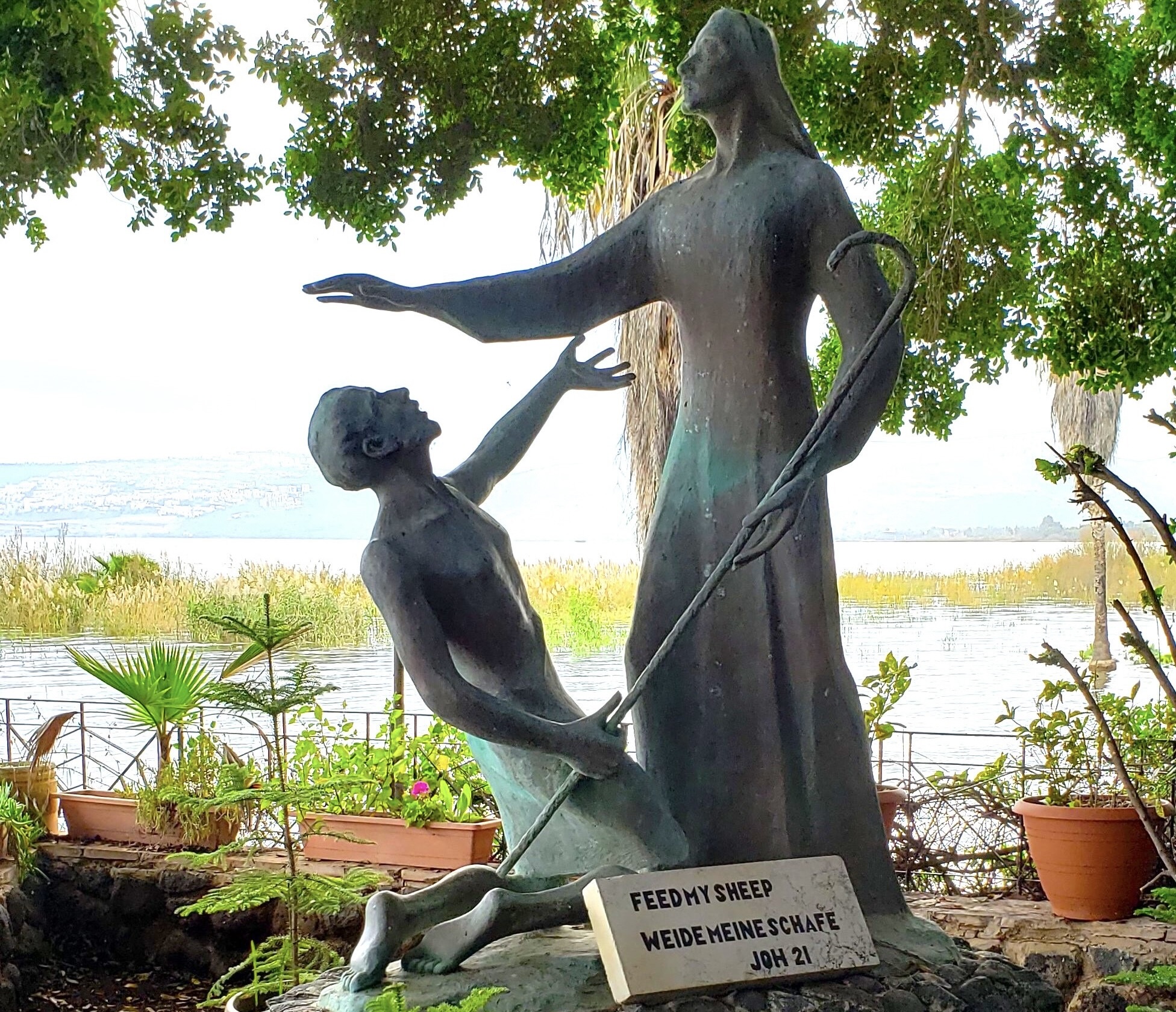This essay first appeared in our weekly Scripture reflection newsletter on May 3, 2025.
The Gospel reading for the Third Sunday of Easter is the Gospel passage chosen for the Funeral Mass of Pope Francis. Surprisingly, the homilist, Cardinal Giovanni Battista Re, the Dean of the College of Cardinals, touched on the Gospel only briefly. Most of his homily took the form of a eulogy. (The former is a reflection on the Gospel, the latter is a reflection on a person’s life).
Though his homily was undoubtedly beautiful, I thought that not highlighting the Gospel was something of a lost opportunity. The Gospel chosen for the Mass was the story of “Breakfast by the Sea,” in which the Risen Christ asks Peter three times “Do you love me?” and allows Peter to answer, as a way of counterbalancing Peter’s triple denial of Jesus during the Passion. That Gospel offers us a key to understanding Pope Francis (indeed any pope) as well as to understanding, more broadly, the experience of all Christians.
That Gospel offers us a key to understanding Pope Francis (indeed any pope) as well as to understanding, more broadly, the experience of all Christians.
One of the surprises of visiting the Holy Land was visiting the traditional site for this post-Resurrection appearance. It’s located on the Sea of Galilee (no surprise) and is not far from the town of Capernaum, Jesus’s home base for his ministry in Galilee (also no surprise). The surprise is that this site on a pebbly beach has been named “Peter’s Primacy.” That is, it is the site where Peter’s “primacy” (his leadership over the apostles and over the church) was definitively established.
The surprise for me was as follows: Wasn’t Peter’s “primacy” established earlier, somewhere near Caesarea Philippi, when Jesus tells Peter that he is the “rock” on which Jesus will build his church? As an aside, this is where Simon is renamed Peter. (In the Aramaic he is called Cephas, which means rock. In Greek it is Petros.) The New Testament scholar Daniel Harrington, SJ, once told me that he thought Jesus might be making a play on words. He wondered if Cephas was already Peter’s nickname: in effect, Rocky. Dan said it could have reflected his “angularity” of character, his toughness or his hard-headedness. Jesus uses his nickname (or gives him a new one) and names him as the human foundation of the church.
Like St. Peter and Pope Francis, all of us are called to see ourselves as sinners in need of God’s mercy.
But the more I thought about it, the more it made sense that it was there on the Sea of Galilee that Peter’s primacy was established. Because it was there, as the Gospel reading recounts, that Peter truly accepted his own flaws, his own limitations and his own sinfulness. So perhaps even more important than Peter’s profession of Jesus as the Messiah at Caesarea Philippi was his confession of his own sinfulness to the Risen Christ.
When Jorge Mario Bergoglio became pope he chose as his motto Miserando atque eligendo, which means “Looking at him with mercy and choosing him,” referring to Jesus’s call of St. Matthew. Understanding himself as a “loved sinner,” as we Jesuits say, was central to Pope Francis’s idea of who he was as a man, a Christian, a Catholic, a Jesuit, a priest, an archbishop and a pope. And shouldn’t this be how we all understand ourselves? As loved sinners?
I write these words from Rome, as we are all awaiting a successor, not to Pope Francis—as our Superior General Arturo Sosa, S.J., reminded us—but to Peter. But like St. Peter and Pope Francis, all of us are called to see ourselves as sinners in need of God’s mercy. And like St. Peter, and Pope Francis, we are also called to hear Jesus’s invitation to accept his love and mercy, and having accepted it, to proclaim it to the world.




